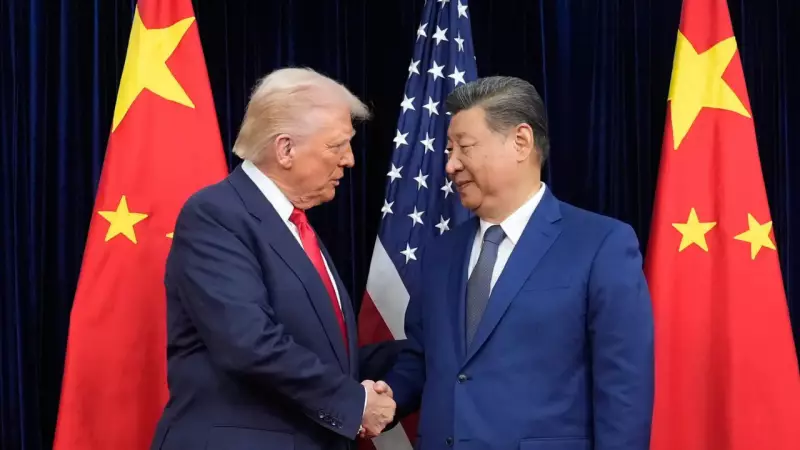
The re-emergence of the US-China strategic partnership, often termed the 'G-2 duopoly,' is creating significant waves in international diplomacy, with India appearing to be the odd one out in this renewed great power engagement.
The Revitalized US-China Axis
Recent high-level interactions between Washington and Beijing signal a notable thaw in relations, with both economic superpowers demonstrating renewed willingness to collaborate on global issues. This development marks a dramatic shift from the tense standoffs that characterized their relationship in recent years.
The resurgence of this powerful bilateral dynamic effectively sidelines other emerging powers, particularly India, which had been positioning itself as a crucial counterbalance to Chinese influence in the Indo-Pacific region.
India's Strategic Dilemma
New Delhi now faces a complex diplomatic challenge. The warming US-China relationship potentially undermines India's carefully cultivated position as America's preferred partner in containing Chinese expansionism.
This development comes at a particularly sensitive time for India, which has been actively seeking to enhance its global stature through leadership roles in international forums and strategic partnerships.
Key Implications for Indian Diplomacy
- Reduced leverage in bilateral negotiations with both powers
- Potential dilution of strategic partnerships in the Quad alliance
- Challenges to India's leadership aspirations in Global South
- Economic implications for trade and technology transfers
The Geopolitical Chessboard Reshuffled
Analysts suggest that the US-China rapprochement reflects Washington's pragmatic recognition that many global challenges—from climate change to economic stability—require Chinese cooperation. However, this pragmatic approach leaves traditional US allies and partners, including India, navigating uncertain terrain.
The renewed G-2 dynamic essentially creates a bipolar world order where middle powers like India must recalibrate their strategic calculations. This could mean exploring new partnerships or adopting more independent foreign policy positions.
Looking Ahead: India's Strategic Options
Foreign policy experts suggest several pathways for India to maintain its relevance in this shifting landscape:
- Strengthening regional partnerships through organizations like BIMSTEC and SCO
- Accelerating domestic economic and military capabilities
- Playing a more active mediation role in global conflicts
- Deepening engagement with European and Middle Eastern powers
As the US and China continue their delicate dance of cooperation and competition, India's diplomatic maneuvering room appears constrained. The coming months will reveal whether New Delhi can craft a response that preserves its strategic autonomy and global ambitions.





